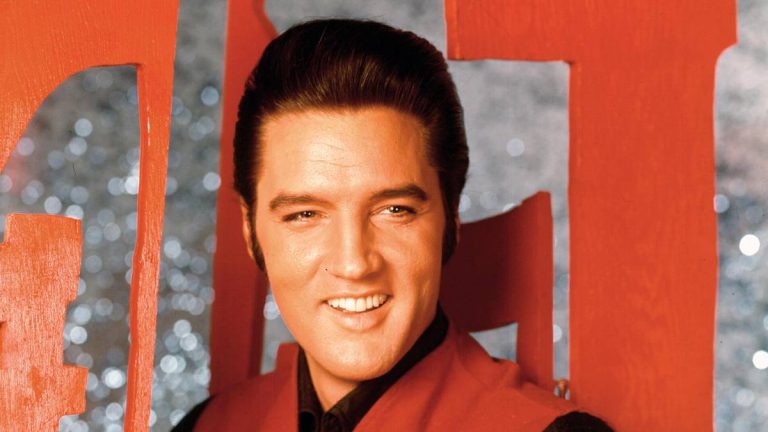Elvis didn’t make protest songs. They didn’t allow it. His famous manager—Colonel Parker—always drilled him in the head by saying, “Don’t make songs with a message.” The king’ He hesitated until the last moment. He was reticent. But in the end he took the risk. The composition of Mac Davis It was the success I desperately needed.. On January 20, 1969, Elvis Presley recorded ‘In the ghetto’ in a Memphis studio. His message of awareness and social criticismMore than evident, it was controversial for the time. There was concern. But he didn’t care. And it was a success.
This It’s a true story of poverty. It happened in the 1940s in a Texas city called Lubbock. There, in a remote area, with dirty streets full of broken glass, a young black man was born. His family had no resources and there were many mouths to feed. It was a ghetto in the broadest sense of the word., a neighborhood in which a minority lived confined, lacking opportunities for the future. In those circumstances, The boy took a wrong path towards crime and that led to his death. This kid’s best friend was Mac Davis.
Mac Davis / Michael Ochs Archives
“I remember he was one of my best friends, we were 5 or 6 years old. I I couldn’t understand why did they have to live where they lived, while we lived where we lived. My family didn’t have much money, but there were no broken bottles at every step. His house was on a dirty ghetto street” said the late Mac Davis in The Tennessean. Country actor, singer and songwriter he spent years “trying to write a song called ‘The vicious circle’. A song that tells “the life of this boy, who fell in with the wrong people and died at the same time that another child came into the world and replaced him. A vicious circle. The word ‘ghetto’ was beginning to become popular in the late 1960s to describe those urban areas where poor people lived.”
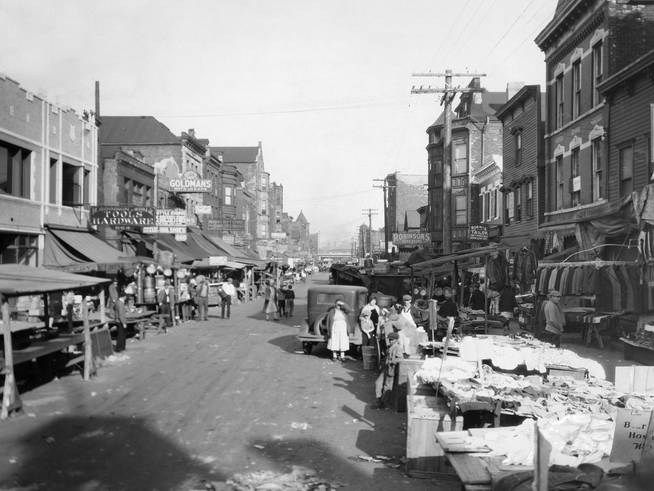
Photo of Maxwell Street Market in Chicago / ullstein bild Dtl.
Right around that time, 1968, Elvis Presley had returned to music after temporarily putting his career in Hollywood on hold. His first step had been to record the television special ‘Elvis’ for NBC, as well as a live album called the same, with a performance that focused on their old songs. To be the ‘king of rock’ again, had to prove that he could produce hit records that fit contemporary tastes. decided to make an albumthe ninth of study, with producer Chips Moman.
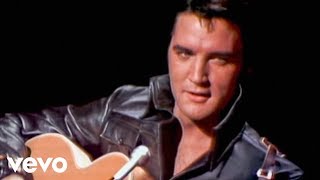
Looking for new material, they turned to Mac (who had already written some songs for him): “I wanted to listen to my things, so he asked me to send him some songs. I was 19. I made a tape with all of them, just me with my guitar. And I sent it to him with everything I had,” declared the Texan in an interview for Songfacts. “The first song on the tape was ‘In the ghetto’. She had just finished it. And the second was ‘Don’t cry daddy’. She recorded both.”
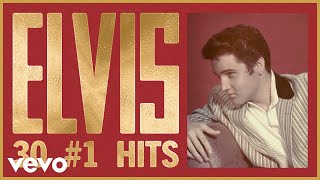
However, Elvis had many doubts before singing ‘In the ghetto’. “I was reluctant to do it,” admitted his friend Marty Lacker in ‘Goldmine’ magazine. “His manager, the famous Colonel Parker, always drilled his head. ‘Don’t make songs with a message. If you do them, it’s like positioning yourself in a political party.. Any side you are going to take is going to offend others.’ I was in the control room after Elvis and the musicians had been working on the song a bit. He said, ‘Look, I don’t think I should do this song.’. I replied, ‘Elvis, If you’re ever going to make a song like this, make this song.’. He looked at Chips and Chips pointed out, ‘This is a hit record. But I’ll tell you that, If you don’t want it, can I have it?’ Elvis didn’t blink. He said, ‘No, I’m going to do it.’”
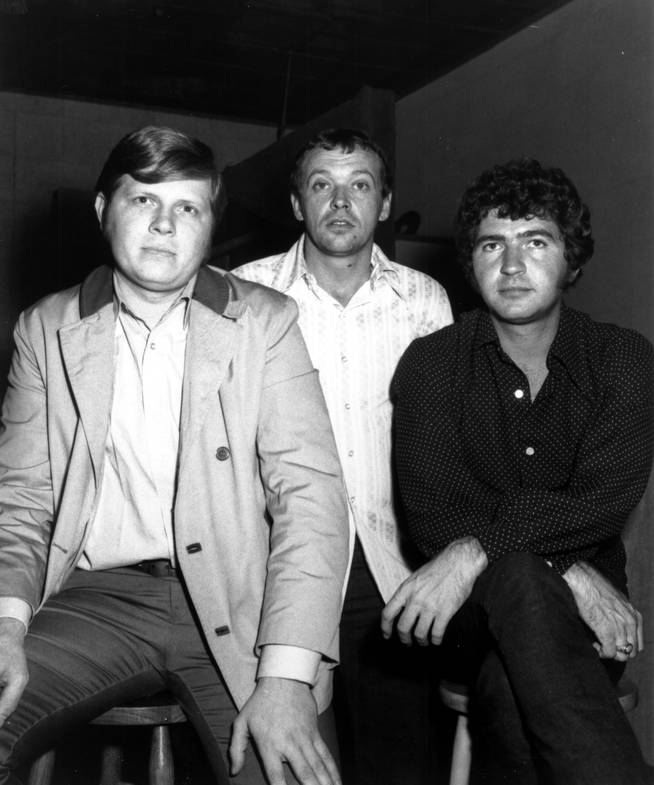
Chips Moman and Mac Davis / Michael Ochs Archives
It was a little cold that afternoon. January 20, 1969, the day Elvis decided to send a message to the world telling what was happening in ‘the ghetto’ and criticizing the social response (“Look at you and me, we are too blind to see it. “We just turn our heads and look the other way.”. He entered with his entourage into the American Sound studio in Memphisa city where he had lived with his family since he was 13 years old and where he had acquired his famous Graceland mansion in 1957. The musicians (known as the Memphis Boys) and the producer were waiting for him. 23 shots were necessary before Moman Chips He would be satisfied with the result.
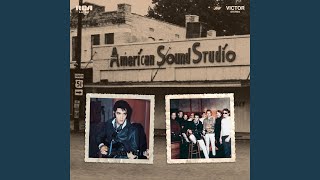
The album sessions ‘From Elvis in Memphis’ They were carried out between January and February 1969. It was the first time, since 1955, that Elvis recorded outside Nashville or Hollywood, without his usual musicians, with a producer he didn’t know and in a studio of which he only knew his name. Desperate to get a number one record, took the risk that would never be repeated. On a break from recording, he took a vacation and went to Aspen, Colorado. to celebrate his daughter Lisa Marie’s first birthday.
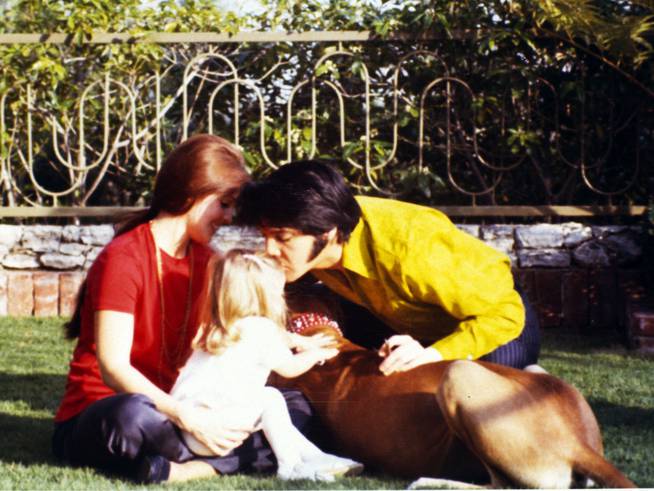
Priscilla, Lisay& Elvis Presley / Magma Agency
The ghetto moved from Lubbock (Texas) to Chicago (“On a cold, gray Chicago morning”), although it could be anywhere else in the world. And the original title, ‘The vicious circle’ became ‘In the ghetto’, although it kept ‘The vicious circle’ as a subtitle. First single from ‘From Elvis in Memphis’, it became the Elvis Presley’s first Top 10 (No. 3) in the United States in four years. Not only that. It also topped the charts in other countries. When Mac Davis heard it on the radio for the first time he was driving: “I wish he hadn’t said ‘Ghet-to’. It was better if he just said ‘In the ghetto’. But the discomfort It only lasted five seconds.. I knew right away that it was a huge success.”, he said in The Tennessean.
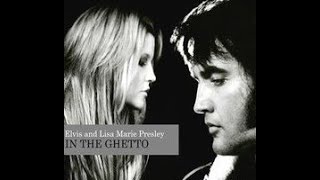
In 2007, Lisa Marie commemorated the 30th anniversary of her father’s death. AND He decided not only to sing, but to do it with him. “I want to use this for something good,” he said. And he recorded a posthumous duet of ‘In the ghetto’ (a la ‘Unforgettable’ by Natalie and Nat King Cole), donating and proceeds to the victims of Hurricane Katrina. In an interview with AP she confessed: “It took me two hours to prepare my voice. The next morning, I listened to the rough and… “I’ve never cried when I’ve done anything, ever… but I cried like a cupcake when I heard it.”
